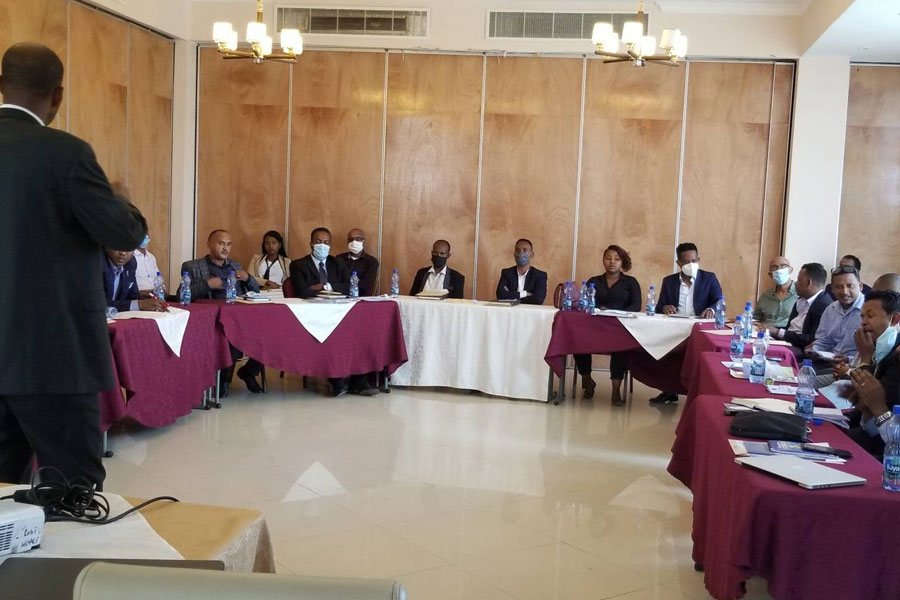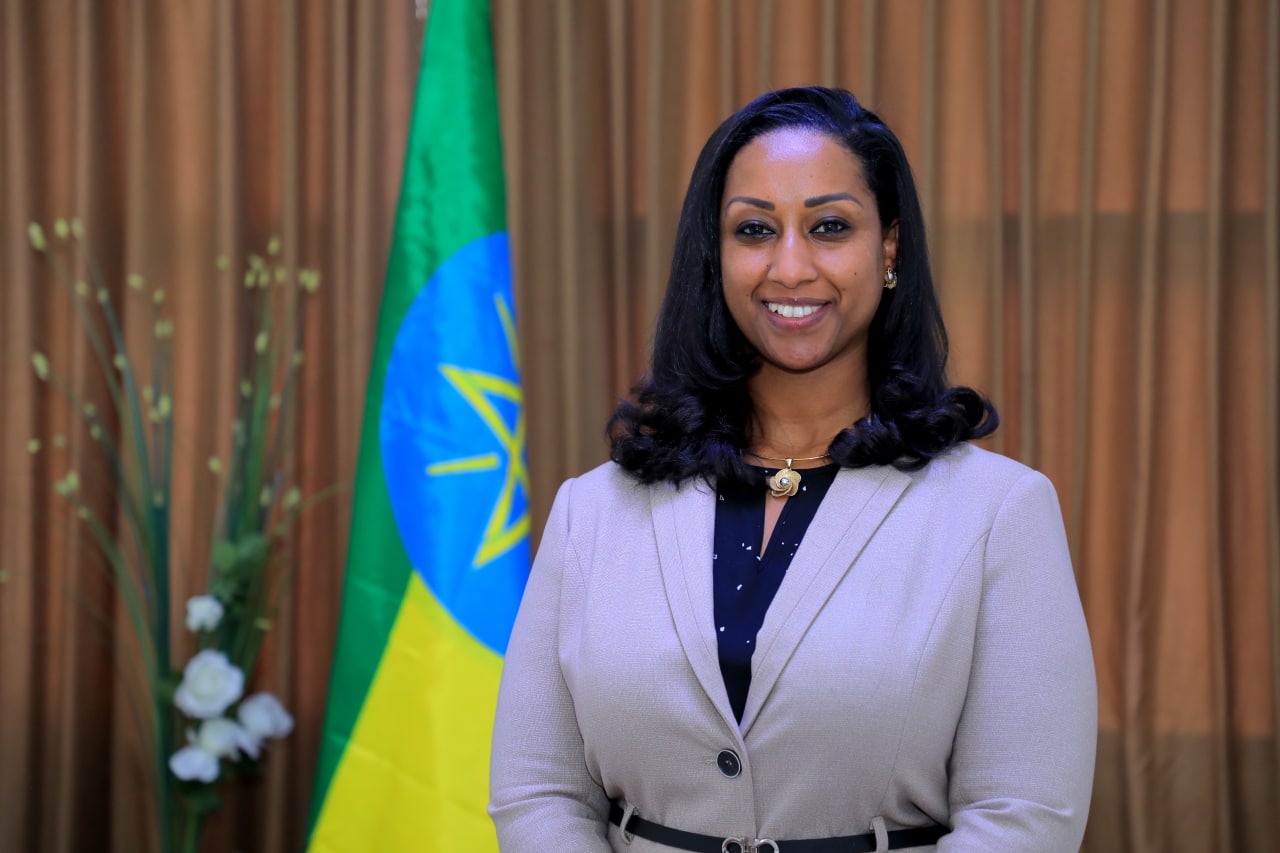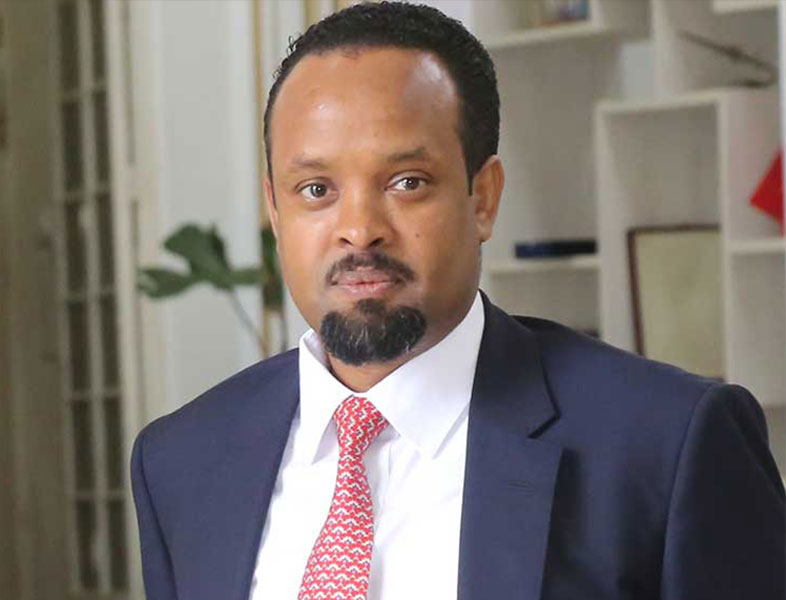
Radar | Feb 04,2023
Nov 4 , 2023
By MUNIR SHEMSU ( FORTUNE STAFF WRITER )
Civil society organisations (CSOs) with roots extending to foreign countries are compelled to provide a two-year work plan which clearly highlights their program expenses, source of funds and project details under the latest bill by the Authority for Civil Society Organizations (ACSO).
The directive which is set to take effect after board approval includes a fresh set of reforms that hope to address the registration and administration of CSOs often rife with unclear stipulations that raise contentions with the Authority.
Organisations are met with a 500-dollar registration fee after proof of legality from their country of origin is provided along with two electronic signatures and a support letter for their endeavours in Ethiopia.
Their work plan must include annual project schedules and funding sources and details on administrative and program expenses with changes requiring notification to the Authority.
Ahmed Hussien, vice president of the Ethiopian Civil Society Council was part of the board involved in the draft making.
He observed the four-year-old proclamation had left room for open-ended interpretation on some issues that needed clarity. The law redefined the civil society landscape starting from the label of 'charity'.
Ahmed believes the bill will address transparency issues of the organisations and limitations of the Authority by clearly stating the process for registration and providing a detailed depiction of the civil society landscape for foreign organisations eyeing to enter the country.
"Some had simply vanished into thin air," Ahmed told Fortune.
While he does not think that the foreign organisations will simply remain in the country due to the obligation to report, he expects a heightened sense of duty to develop due to the enhanced oversight.
"They [CSOs] should not assume that the country is a free-for-all environment with no oversight," he said.
Ahmed explained that the provisions on the utilisation of a foreign currency account radiate from the desire to harmonise the Authority's mandate with the regulations of the central bank.
There are close to 600 international civil society organisations working in the country. They are engaged in several sectors from democracy and human rights to strict provision of aid.
According to Teferi Geletu, registration lead executive at the Authority, the directive augments existing stipulations already hinted through the proclamation. He said an organisation coming all the way from a foreign base should be expected to know the sectors of interest that align with the goals of its headquarters.
"It only makes things clearer," said Teferi.
Although civil society organisations working in the country are hopeful of the straightforward process and transparency, they remain worried about the implementation bureaucracy.
Gezahegn Kebede (PhD) has been a country director at Oxfam International for nearly six years and perceives the string of reforms by the Authority from several contrasting perspectives.
He explained that oversight by a regulatory body in requiring reports on projects and finances should be given for any foreign or local civil organisation despite remaining apprehensive over the implementing officials' capacity and goodwill.
Gezahegn expressed that regulations should not disincentivise but enable a transparent civil society working environment.
"There is a tendency to lump all organisations together," he told Fortune while underscoring the importance of proper regulatory oversight.
Gezahegn indicated that emergencies might require CSOs to suddenly shift their operations by hiring professionals from abroad or switching to projects that require immediate intervention.
The draft directive requires submitting a notification to the Authority, which includes the support of the base organization.
"There needs to be a goodwill of sorts from the officials," Gezahegn said.
The Country Director voiced concerns over the removal of duty-free privileges.
Many civil society organisations began entering Ethiopia after the 1970s famine which had garnered worldwide attention. The country has had organisations like the Red Cross operating since the early 20th century.
Yonas Misganaw, a legal expert who has worked in the civil society sector for several years, indicates that the directive leaves little room for conflicting interpretations for organisations looking to register in the country.
He noted that the absence of a clear directive had been a source of disagreement between representatives who adhered to the general provisions of the proclamation and officials at the Authority who might request more details on the applications.
Yonas pointed out that requiring the CSOs to report on priorities and support from their base organisations will likely decrease complaints that the Authority receives regularly.
"The registration modality remains quite enabling," he told Fortune.
Yonas further explained that the 2019 proclamation already restricts the Authority from requesting further documentation besides those explicitly stated, which he believes provides a legal ground for the CSOs.
"Frustrations about implementation might arise," he said. "But it can't be attributed to the weakness of the legal framework".
PUBLISHED ON
Nov 04,2023 [ VOL
24 , NO
1227]

Radar | Feb 04,2023

Radar | Jul 06,2019

Radar | Apr 30,2022

Radar | Jul 29,2023

Fortune News | Jul 03,2021

Fortune News | Aug 08,2020

Fortune News | Mar 20,2021

Fortune News | Jan 11,2020

Fortune News | Oct 12,2019

Fortune News | Jul 12,2021

Dec 22 , 2024 . By TIZITA SHEWAFERAW
Charged with transforming colossal state-owned enterprises into modern and competitiv...

Aug 18 , 2024 . By AKSAH ITALO
Although predictable Yonas Zerihun's job in the ride-hailing service is not immune to...

Jul 28 , 2024 . By TIZITA SHEWAFERAW
Unhabitual, perhaps too many, Samuel Gebreyohannes, 38, used to occasionally enjoy a couple of beers at breakfast. However, he recently swit...

Jul 13 , 2024 . By AKSAH ITALO
Investors who rely on tractors, trucks, and field vehicles for commuting, transporting commodities, and f...

Jul 5 , 2025
Six years ago, Ethiopia was the darling of international liberal commentators. A year...

Jun 28 , 2025
Meseret Damtie, the assertive auditor general, has never been shy about naming names...

Jun 21 , 2025
A well-worn adage says, “Budget is not destiny, but it is direction.” Examining t...

Jun 14 , 2025
Yet again, the Horn of Africa is bracing for trouble. A region already frayed by wars...